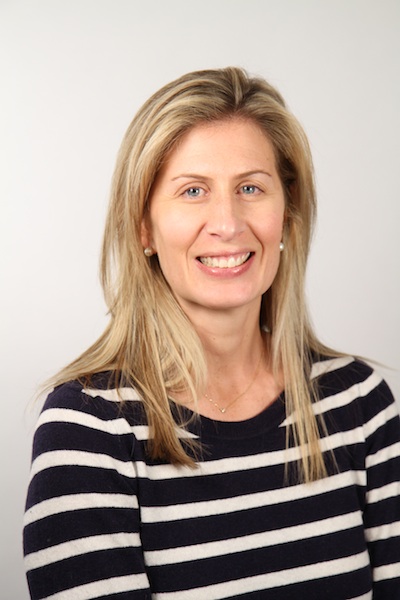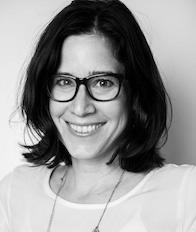FFG: Mary Pat Augenthaler
When I asked Mary Pat Augenthaler earlier this week what year she was promoted to her current role as the Vice President of NFL Events, she paused to think for a moment. “Let’s see my daughter just turned six, so it was six years ago,” she remembered. Augenthaler’s most important job became obvious when we spoke – she also has a nine-year old daughter. And, as she continues to balances motherhood with an intense, high profile role at the NFL, the lights will never be as illuminated as this February when the Super Bowl heads to the New York/New Jersey region.
I chatted with Augenthaler about her career trajectory, the evolution of the Super Bowl from an events perspective, what fans can expect from “Super Bowl Boulevard,” and how she handles those pesky ticket requests. (Hint: don’t ask.)

(Photo courtesy of the NFL)
Melissa Jacobs: Take me through your career path. How did you become involved in event planning, and eventually wind up in the NFL?
Mary Pat Augenthaler: I graduated from Boston College in ’91 and started out at a very small sports marketing agency called Sports Link. I was the receptionist. I answered the phones. I paid the bills. I typed on a typewriter – I know it sounds archaic but I did. I would say sports marketing was just breaking out then. And it really was a great place, as I call it, kind of like business school without the tuition. I was there for about four years and in between I left and worked for Boston College in a New York fundraising capacity for a year-and-a-half. That’s when I started to get really good sales experience. But because I was the fifth out of six kids to go the B.C. in my family, a lot of whom I was calling on and asking for money were my siblings’ friends or people they worked with so it wasn’t necessarily the right fit. I really wanted to get back into sports. My former boss at Sports Link, his wife worked in the events department at the NFL. She was the person who brought me in, but I didn’t get hired right away. In fact, I can’t even count how many jobs I interviewed for here. But finally I was hired in the fall of 1996 as the Manager of Television Events.
MJ: Was it challenging to enter the NFL as a woman in 1996?
MPA: I’m going to be completely honest; I have never for one day felt like there was a weird period for being a woman at the NFL. I feel very strongly about that. If anything I feel like I’ve had opportunities that maybe some men wouldn’t have had. When I felt started I was working on a highly rated show called “The Quarterback Challenge” on NBC and we had these huge meetings where I was the only woman in the room, so the minute I walked in everyone knew who I was. I felt that was an advantage. Really, I’ve never felt for a day that I’ve had any sort of competitive disadvantage.
MJ: Were you an NFL fan growing up?
MPA: I was. I have two older brothers and I remember watching the Pittsburgh Steelers and Dallas Cowboys growing up. I grew up on Long Island so we watched the Jets and the Giants but it was the time period in the 70’s when the Steelers and Cowboys were more iconic.
MJ: Now that’s you’re in a high-level events role, what are your key job functions?
MPA: I would say Super Bowl is a lot of my job. It’s not all that I work on but it is a large part, also because we work on Super Bowls so far in advance. We’re already working on San Francisco and Houston, which were just recently awarded. Working on multiple Super Bowls at once takes a lot of energy and switching gears. It never gets boring. Even if we are returning to a city our job is to make it new and interesting and fun for returning fans. And there can be the challenge of a new city, and Indianapolis (XLVI) was a great example of this, a winter city with a dome in a cold weather environment that turned out to be one of the greatest Super Bowls ever.
MJ: So what are you doing with San Francisco and Houston in these infantile stages?
MPA: We are trying to find that focal point. Where is the NFL Experience going to be? Super Bowl Boulevard? If we have nightly concerts, where will they be? Indianapolis taught us that having a real hub to Super Bowl instead of spreading it out all over really works. That’s been our model since, so it’s sort of like our urban planning for lack of a better description.
MJ: I don’t think the breadth of events at a Super Bowl is something you can understand unless you’ve been there. Do you view the current sheer enormity of Super Bowls is a natural evolution mirroring the NFL’s growth in popularity, or would you say anything there was some kind of Super Bowl-specific tipping point?
MPA: I’m going to say it’s a combination. There was a natural growth for sure, and of course, we are always thinking about what else we can add. One of the things that is great here is we are allowed to come up with exciting and innovative elements, and oftentimes, people will say, “go for it.” And I have to say that Indianapolis changed the model a little bit in that it was smaller city, smaller than we had been to, especially during a really big Super Bowl time. It really proved that whether it was cold weather or a smaller city that we can do more and people were hungry for it.
MJ: You keep mentioning Indy. Would you rank that Super Bowl as the most successful your tenure?
MPA: That’s a tough question because it’s not like any Super Bowl before Indy wasn’t great. There was just a feeling people got from that city and the people there really made you feel special. Everyone was together and nice and really proud of the city and state they lived in. It was electric in Indianapolis, for sure. That’s not to say Super Bowls in South Florida or Tampa aren’t wonderful. If I could, I’d take a piece of several Super Bowls and combine them for my perfect event.
MJ: You’ve made the rounds recently talking about New York and “Super Bowl Boulevard” that will cover ten blocks of Broadway. Can you describe how it will actually look?
MPA: It’s going to be great. We have a 60-foot toboggan run that is 180 feet long. It has eight lanes so everyone can celebrate the cold weather. If you can imagine tobogganing into Times Square from 60-feet high, it’s going to be very cool. We also have the Vince Lombardi Trophy that will be built in a glass enclosed tent so folks can come admire the trophy, have their picture taken with it and about ten minutes later see their picture up on a billboard in Times Square. We’re going to have a concert stage and plenty of free player autographs. Our network partners from Fox, to CBS to ESPN are all going to be there as well. And everyone is shooting 360 so you can see into Times Square or look south. People love television and that draws a natural crowd. Down by Herald Square we are creating a custom mapping show on the facade of Macy’s. It will explore every nuance and will be a show that celebrates football history, football in the present, New York, New Jersey and the cold weather. That show will start every night when it gets dark. So overall there will be plenty of options that appeal to fans and those just passing by.
MJ: Because it’s New York and you have endless options for everything, do you believe this Super Bowl will be your most robust yet?
MPA: New York sort of is that way. It’s the city with so many people and so many cultures. How do we try to reach as many as we can? Super Bowl Boulevard is one obvious way, especially since it’s free. And our partners are thinking outside the box because we really are going to embrace the cold, whether it’s football clinics or outdoor concerts, which never happen in the cold. I do think a Super Bowl in this area forces you to think bigger than normal. Our goal is one million visitors.
MJ: Being that the league offices are also in New York, how many people have already asked you for Super Bowl tickets?
MPA: That is one of the luxury of being a grown up. They can ask but it’s the road to nowhere. But they still ask. And sometimes it’s from people I haven’t seen or even talked to in ten years.
MJ: What are some of your hobbies not related to the NFL?
MPA: I mostly love spending time with my kids. I’ve been a mad spinner lately. I love spinning. I also run and love to read. And that’s about all I have time for.
MJ: In closing, what advice would you have for women, or anyone for that matter, wanting to work in such a high profile events department?
MPA: If you want to work in sports it can seem very difficult to get into it. Stick with it, and a door will open eventually. Reach out to every connection. I get emails from kids graduating from B.C. all the time. Working in the events group has the perception of being glamorous because we’re behind the scenes, but really, it’s about as unglamorous as it gets. We’re backstage with headsets and carrying boxes with crooked ponytails and working 18-hour days with no sleep. Event work is something you have to love and some people sift themselves out pretty quickly. You love it or look at us and say ‘those people are crazy.’
Click here to see our past “Featured Football Girls.”



